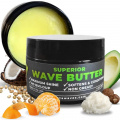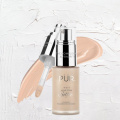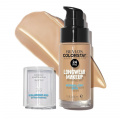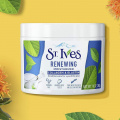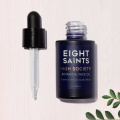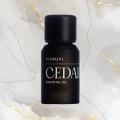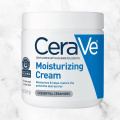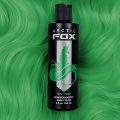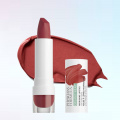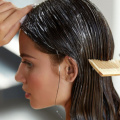Top 5 Benefits of Night Creams That'll Make You Want to Use One Right Away
If you think night creams are only for hydration, you are mistaken. There are many more benefits of night creams that'll make you fall in love with them.

A skincare regimen is not just a process; it's a journey that helps you achieve flawless skin. Night face creams are truly the star of the skincare routine as they keep the skin moisturized, boost skin elasticity, delay the signs of premature aging, and make your skin softer and smoother. There was a time when many people weren't aware of the various benefits of night creams and relied heavily on day creams to keep their skin healthy. However, both are important. According to Dr. B.R.N. Padmini, a serving Consultant in the Plastic Surgery unit of CARE Hospitals, Hyderabad, “Day creams and night creams serve different purposes and are formulated to address specific skincare needs based on your skin's natural processes during the day and at night.”
Now you must be thinking, do we really need night creams? Aren't day creams enough to keep our skin healthy? While it's true that day creams give us the daily dose of hydration our skin needs, due to the ever-changing environment, a night cream is the need of the hour. Dr. BRN Padmini further elaborates on the key differences, “Day creams often contain ingredients like antioxidants and SPF to shield your skin from environmental stressors like UV rays, pollution, and free radicals. They provide lightweight hydration to keep your skin moisturized without feeling heavy or greasy.” On the other hand, night creams are formulated differently, and provide different benefits. She continues, “Night creams typically don't contain SPF since they are meant for nighttime use. (They) focus on repairing and rejuvenating your skin while you sleep. They contain ingredients that support the skin's natural repair processes. They might contain ingredients like retinol, peptides, and hyaluronic acid to target signs of aging.”
Sunrays and pollution can cause a lot of harm to the skin by making your skin age prematurely, causing photoaging, and making your skin dry. After a long, hectic day, when you come back to your home, not just you, but your skin too gets tired and needs some nourishment — this is where night creams come into play. As Dr. BRN Padmini reiterates, “Night creams often have richer textures and provide deep hydration to replenish moisture lost during the day.” Today, we are going to discover all the benefits of moisturizing your face at night.
Benefits of Night Creams You Need to Know About
1. May Boost Collagen Production
Collagen is a necessary protein that your body needs to keep your skin, connective tissues, muscles, and bones healthy (4). It boosts skin firmness, improves skin hydration, and promotes skin elasticity (4). Night creams contain collagen that helps you get softer and healthier skin (5), (6).
2. Keeps Your Skin Moisturized
The skin-nourishing ingredients commonly used to formulate night creams help boost skin hydration. Ceramides improve skin barrier function and prevent dryness of the skin (7). Vitamin E has antioxidant and moisturizing properties that help delay the signs of aging and keep the skin moisturized (8), (9). Honey helps regulate the pH levels of the skin and keeps the skin nourished (10). Plant oils like coconut oil, jojoba oil, sesame oil, etc. reduce oxidative stress, repair skin barrier, and treat dryness (11), (12). One of the major benefits of night creams is that it provides moisturization to your skin, which in turn gives you plumper-looking skin and also improves skin barrier repair (13).
3. May Help Treat Hyperpigmentation
Hyperpigmentation is a condition that makes the skin appear darker than its surrounding skin. Night creams that have retinoids or niacinamide as active ingredients may help you treat the signs and symptoms of hyperpigmentation and lighten your skin tone (14), (15). So, say yes to a night cream and see the dark patches on your skin go away.
4. May Help Delay the Signs of Aging
Invest in a night cream with anti-aging ingredients such as antioxidants, retinol, and hyaluronic acid — these power-packed ingredients help keep skin aging at bay, leaving you with younger-looking skin (16), (17), (18).
5. May Help Improve Blood Circulation
Massaging night creams in circular motions can help promote blood circulation, thereby leading to glowing skin. That’s because facial massages not only promote blood circulation but also boost skin elasticity (19). When there is proper blood circulation in the skin, oxygen, and nutrients penetrate easily into your skin. This keeps the skin healthy and radiant.
Common Ingredients Used in Night Creams

There are various benefits of night creams — and those benefits come from the kind of ingredients used in the formulations of night creams. These are some of the common ingredients used to formulate night creams:
- Vitamin C
- Vitamin E
- Jojoba oil
- Olive oil
- Honey
- Shea butter
- Jasmine
- Antioxidants
- Apricot oil
- Retinol
- Amino acids
- Aloe vera
- Peptides
- Copper
- Anti-aging ingredients
A combination of these ingredients in a night cream can help you achieve flawless skin. However, it is important to consider what you follow up your nightcream routine with. Dr. BRN Padmini suggests, “It's important to apply sunscreen in the morning, even after using a night cream with specific ingredients. Some night cream ingredients, like retinoids and exfoliating acids, can make your skin more sensitive to the sun. Sunscreen protects your skin from UV damage, which is crucial for preventing premature aging and other skin issues. Using sunscreen in the morning is a vital step to ensure your skin's protection and health.”
A combination of these ingredients in a night cream can help you achieve flawless skin.
How to Use Night Creams for Best Results

A night cream can work wonders when applied correctly. Here are some easy steps tha6t'll help you understand how to use a night cream on your face.
- Wash your face thoroughly with a mild cleanser. Dry your face using a soft towel. Do not rub vigorously.
- Take a small amount of the night cream and massage it all over your face in upward strokes using your fingertips. Do not apply it to the area around your eyes. Massage it all over your face and neck.
- Keep this on your skin overnight. Wash it off the next morning with cold water or a gentle cleanser.
How to Choose the Perfect Night Cream to Get Flawless Skin
Using a night cream is essential to maintain the health of your skin, but picking the right one is equally important. As the market is filled with so many night cream brands, you can get confused about which one to buy. Be it a night cream or a face wash, always make sure that you go for a product that suits your skin type.
There are many benefits of night creams, but they'll show their effectiveness only if you choose the right one. Here is how you can choose the right night cream for yourself:
1. Oily Skin
People who have oily skin break out easily. They should pick a night cream that's non-comedogenic, non-greasy, and has a light texture.
2. Dry Skin
Look for moisturizing ingredients in a night cream — vitamin E, shea butter, honey, and aloe vera can help provide hydration to the skin. A night cream that has a rich texture and soothes inflammation is a great pick for people with dry and scaly skin.
3. Sensitive Skin
People with sensitive skin types are often picky when choosing a skincare product - and for good reason. Sensitive skin tends to be more prone to allergies, irritation, and redness, so they must choose a night cream that's hypoallergenic (won't cause allergies) and can nourish the skin. If you have sensitive skin, it would be best if you keep away from phthalates and artificial fragrances as they can cause skin irritation (20), (21).
4. Normal Skin
People with normal skin types are truly blessed as they don't have to worry a lot about the ingredients in a night cream. There are many good ingredients that night creams have and they suit normal skin types — these ingredients are glycerin, ceramides, antioxidants, honey, and hyaluronic acid. They help protect your skin against environmental stressors and keep it healthy.
5. Mature Skin
Mature and aging skin is prone to fine lines and wrinkles and so night creams with anti-aging ingredients, such as vitamin E, retinol, and vitamin A, and most suited to delay the process and improve the existing signs of aging.
Conclusion
Night creams help keep your skin spotless and healthy by boosting collagen production, providing nutrients to the skin, and making the skin firm and soft. Apply a night cream generously on your skin and let it stay overnight to do its work. Don't forget to cleanse your skin, exfoliate your skin regularly, and use face packs to follow a holistic skincare regimen.
Sources:
1. Moisturizers: reality and the skin benefits
https://pubmed.ncbi.nlm.nih.gov/22913439/
2. FACE CREAMS AND APPLICATION
https://www.researchgate.net/publication/353901635_FACE_CREAMS_AND_APPLICATION
3. Ultraviolet Radiation, Aging and the Skin: Prevention of Damage by Topical cAMP Manipulation
https://www.ncbi.nlm.nih.gov/pmc/articles/PMC4344124/
4. A Review of the Effects of Collagen Treatment in Clinical Studies
https://www.ncbi.nlm.nih.gov/pmc/articles/PMC8620403/
5. A Novel Facial Cream Based on Skin-penetrable Fibrillar Collagen Microparticles
https://www.ncbi.nlm.nih.gov/pmc/articles/PMC9122277/
6. Collagen Supplements for Aging and Wrinkles: A Paradigm Shift in the Fields of Dermatology and Cosmetics
https://www.ncbi.nlm.nih.gov/pmc/articles/PMC8824545/
7. Skin hydration is significantly increased by a cream formulated to mimic the skin’s own natural moisturizing systems
8. Vitamin E in Human Skin: Functionality and Topical Products
9.Vitamin E in Dermatology
https://www.researchgate.net/publication/305302250_Vitamin_E_in_Dermatology
10. Honey in dermatology and skin care: a review
https://pubmed.ncbi.nlm.nih.gov/24305429/
11. Anti-Inflammatory and Skin Barrier Repair Effects of Topical Application of Some Plant Oils
https://www.ncbi.nlm.nih.gov/pmc/articles/PMC5796020/
12. Natural Oils for Skin-Barrier Repair: Ancient Compounds Now Backed by Modern Science
https://pubmed.ncbi.nlm.nih.gov/28707186/
13. The Role of Moisturizers in Addressing Various Kinds of Dermatitis: A Review
https://www.ncbi.nlm.nih.gov/pmc/articles/PMC5849435/
14. Effects of Topical Retinoids on Acne and Post-inflammatory Hyperpigmentation in Patients with Skin of Color: A Clinical Review and Implications for Practice
https://www.ncbi.nlm.nih.gov/pmc/articles/PMC8776661/
15. The effect of niacinamide on reducing cutaneous pigmentation and suppression of melanosome transfer
https://pubmed.ncbi.nlm.nih.gov/12100180/
16. Role of antioxidants in the skin: anti-aging effects
https://pubmed.ncbi.nlm.nih.gov/20399614/
17. Retinoids in the treatment of skin aging: an overview of clinical efficacy and safety
https://www.ncbi.nlm.nih.gov/pmc/articles/PMC2699641/
18. Hyaluronic acid: A key molecule in skin aging
https://www.ncbi.nlm.nih.gov/pmc/articles/PMC3583886/
19. A pilot study on the immediate effects of modified facial massage on blood flow, temperature, and elasticity of facial skin
https://he01.tci-thaijo.org/index.php/ams/article/view/66216
20. Phthalates and Their Impacts on Human Health
https://www.ncbi.nlm.nih.gov/pmc/articles/PMC8157593/
21. Skin exposure to scented products used in daily life and fragrance contact allergy in the European general population ? The EDEN Fragrance Study
https://www.ncbi.nlm.nih.gov/pmc/articles/PMC8247875/
ALSO READ: 17 Best Night Creams That Replenish Your Skin When You Sleep





 JOIN OUR WHATSAPP CHANNEL
JOIN OUR WHATSAPP CHANNEL



































